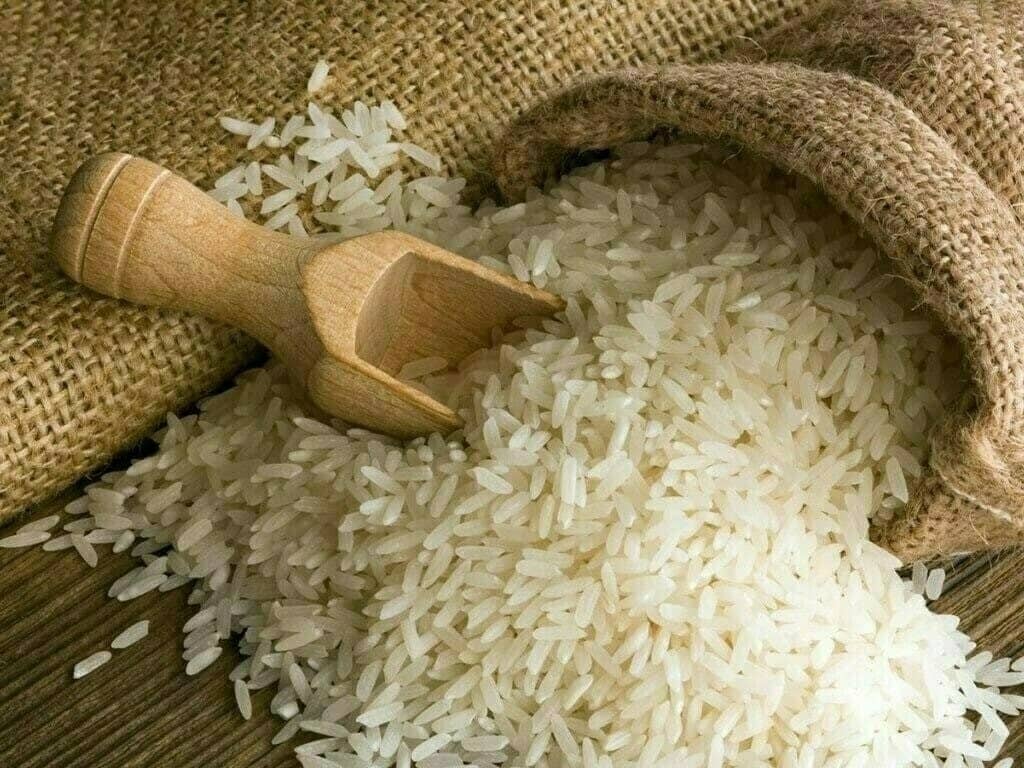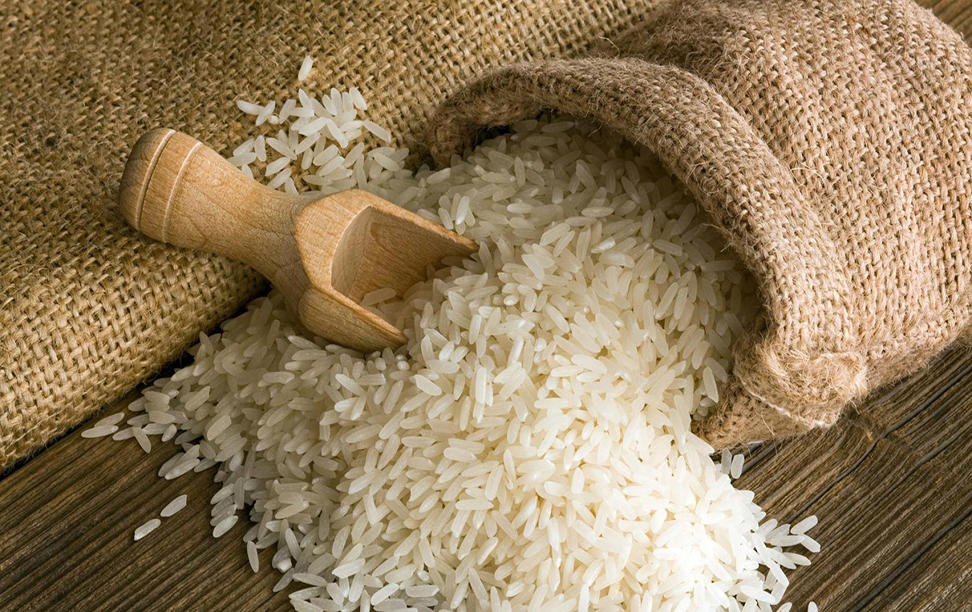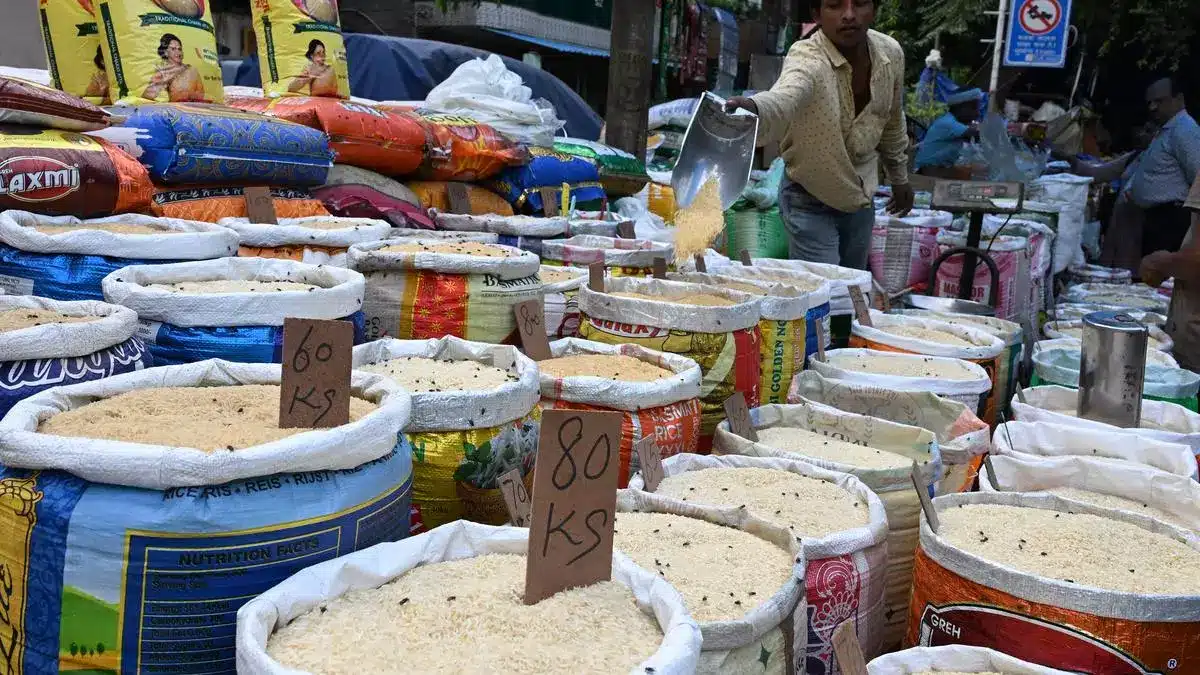Tags
Basmati rice exporters halt purchases as govt maintains MEP at $1,200 per tonne
Commission agents have advised farmers associated with them to wait to bring their crops to the mandis until exporters return.

Approximately 6.30 lakh tonnes of Basmati have been purchased, with an expected arrival of 25 to 26 lakh tonnes in the mandis this season. (Express file photo by Jasbir Malhi)
Exporters have ceased purchasing Basmati rice in wholesale markets, particularly in Haryana and some mandis in Punjab, due to the Indian government’s decision to maintain the minimum export price (MEP) at $1,200 per tonne.
Over 40 mandis in Haryana reportedly closed for Basmati purchases on Sunday, as commission agents have advised farmers associated with them to wait to bring their crops to the mandis until exporters return.
Prices for Basmati 1509 and 1718 varieties, currently entering the market, have dropped by Rs 300 per quintal for top-quality and slightly lower-quality grains since Friday.
“The Indian government has set a minimum export price of $1,200 per tonne for all Basmati rice varieties. This decision has led to the suspension of rice exports from India. In protest against the government’s decision, rice exporters have stopped purchasing Basmati rice from mandis. Therefore, until exporters resume buying from mandis, the presidents of several district mandis are asked to tell farmers not to bring fine rice to the mandis,” said Ashok Gupta, the president of the Haryana Anaj Mandi Arhtiya Association.
Nathi Ram Gupta, the president of the All India Exporters Association (AIREA), also mentioned that the government continues to impose restrictions, allowing Basmati contracts to be registered only at prices exceeding $1,200 for registration cum allocation certificates (RCAC). AIREA members are advised to be cautious in their paddy procurement and inventory holding due to the impact on business viability and Basmati exports.
In light of trade stability, members are encouraged to stop purchasing paddy and rice immediately, as instability from ongoing conflicts in West Asia may impact markets, trade routes, carrier costs, and financial flows, said AIREA officials.
Vijay Setia, a former All India Rice Exporters Association president, said, “The situation is worsening in all mandi yards in northern India; exporters and millers are unable to buy Basmati, and they have withdrawn their purchases. They knew buyers’ options. Pakistan has double Basmati crop, and we’ve already given them a 45-day window for sales. With policy disruption, the entire industry is waiting for AIREA’s intervention for the industry and farmers.”
Setia also emphasised the support from Punjab’s rice miller association for the exporters’ decision. He recalled a similar incident where bureaucrats made essential decisions about Basmati crops against inappropriate ministerial decisions. He mentioned the significant role played by two Indian IAS officers.
“Today, when the country exports Basmati worth Rs 48,000 crores, all this credit goes to two brilliant IAS officers. Madam Shyama Maan, secretary of food and supplies Punjab government in 1988. She defied the Centre’s order to impose a levy on Basmati rice for PDS. She was threatened by the then Union minister of civil supplies for defying the central orders. Still, she stood firm and decided in the interest of farmers that any Basmati paddy selling above Rs 450 per quintal would be exempted from levy for exports. Later, the government withdrew its controversial policy.”
Setia added, “And the other is Utma Chaudhary, joint secretary of the agriculture ministry. She was the officer who got declared the 1121 variety as Basmati, now considered one of the best Basmati varieties developed by PUSA institute, against the decisions of the then ministers of agriculture and commerce who declared it non-Basmati.”
Farmers also suffer from the lack of Basmati purchases. In Ludhiana’s Khanna mandis, very few purchases were made, totalling only 8,000 tonnes throughout the state. Approximately 6.30 lakh tonnes of Basmati have been purchased, with an expected arrival of 25 to 26 lakh tonnes in the mandis this season.
The government imposed the MEP on Basmati rice on August 25, causing concern among exporters in Punjab and Haryana, the major Basmati rice-exporting states. After repeated requests from exporters, Union minister Piyush Goyal indicated a lower MEP of $850 per metric tonne on September 25.
https://indianexpress.com/article/cities/chandigarh/basmati-rice-exports-mep-8985081/Published Date: October 16, 2023







